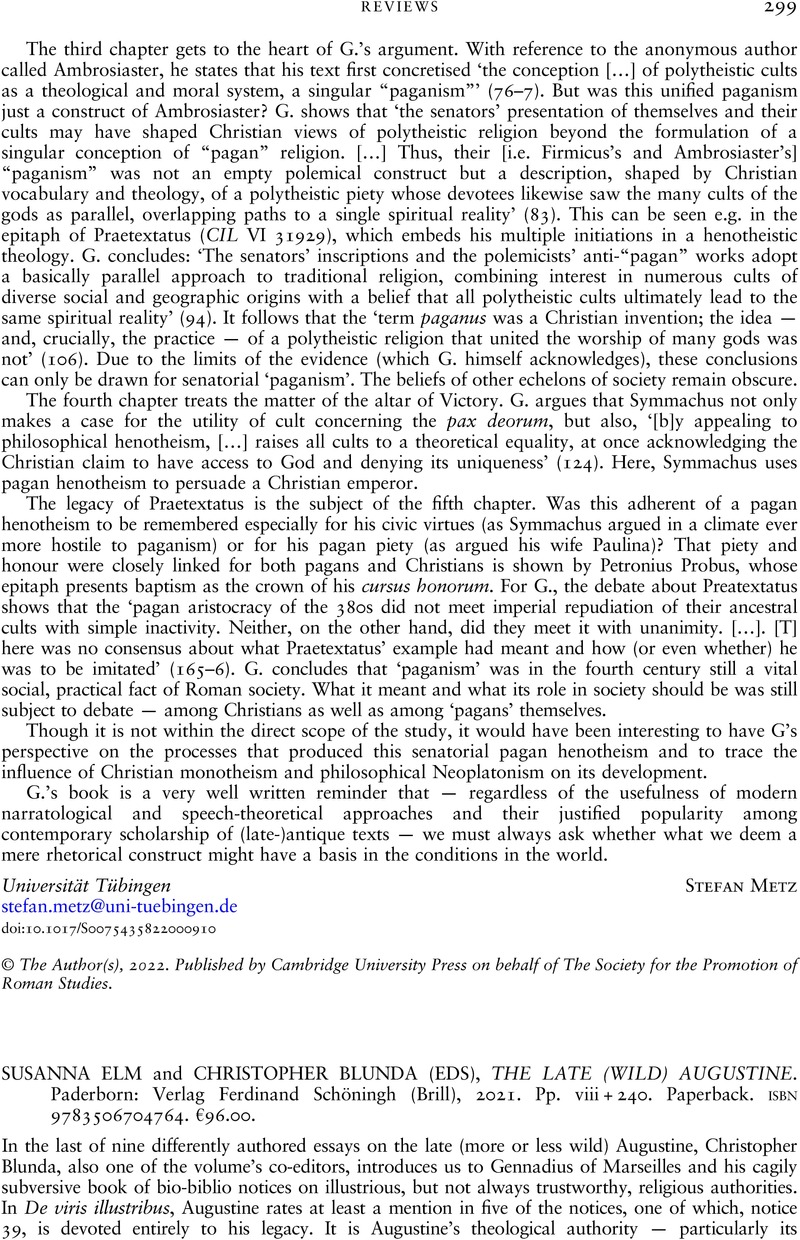No CrossRef data available.
Article contents
SUSANNA ELM and CHRISTOPHER BLUNDA (EDS), THE LATE (WILD) AUGUSTINE. Paderborn: Verlag Ferdinand Schöningh (Brill), 2021. Pp. viii + 240. Paperback. isbn 9783506704764. €96.00.
Review products
SUSANNA ELM and CHRISTOPHER BLUNDA (EDS), THE LATE (WILD) AUGUSTINE. Paderborn: Verlag Ferdinand Schöningh (Brill), 2021. Pp. viii + 240. Paperback. isbn 9783506704764. €96.00.
Published online by Cambridge University Press: 21 November 2022
Abstract
An abstract is not available for this content so a preview has been provided. Please use the Get access link above for information on how to access this content.

- Type
- Reviews
- Information
- Copyright
- Copyright © The Author(s), 2022. Published by Cambridge University Press on behalf of The Society for the Promotion of Roman Studies


